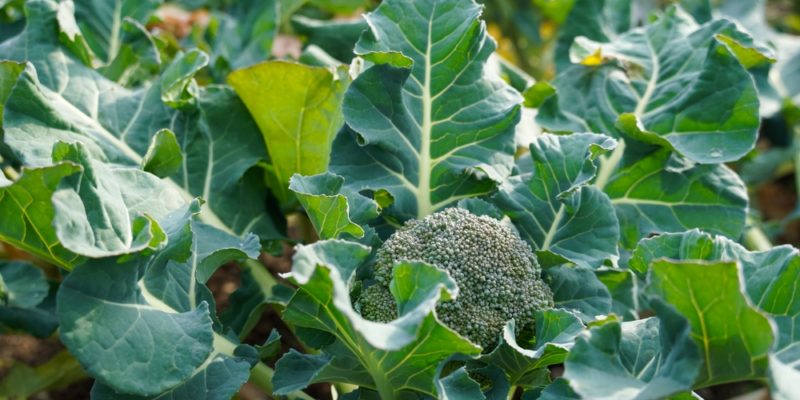Cold Chain Strategies for Queensland’s Winter Harvest
When people think of fresh, vibrant Australian produce, summer gets all the attention. But here in Queensland, our winter harvest bring a surprising bounty—especially for citrus growers, leafy greens farmers, and vegetable producers. From June to August, the fields are full of mandarins, kale, broccoli, and root vegetables that need to be moved efficiently and carefully to supermarkets, foodservice distributors, and wholesale markets across the country.
And while the weather might be cooler, the standards for freshness are higher than ever. In fact, transporting winter produce can bring just as many challenges as summer freight—just in different forms. At Cannon Logistics, we know that maintaining the integrity of your cold chain is critical to preserving freshness, reducing spoilage, and keeping your clients coming back season after season.
Let’s look at what makes winter produce logistics unique, and how to optimise your supply chain for peak performance in the colder months.
Queensland’s Winter Harvest: Crops That Need Extra Care
Winter may not be associated with abundance in other parts of Australia, but Queensland’s growing regions stay busy year-round. Some of the key crops that move through our refrigerated fleet during winter include:
- Citrus fruits – oranges, mandarins, lemons
- Leafy greens – spinach, rocket, coriander, lettuce
- Brassicas – broccoli, cauliflower, cabbage, kale
- Root vegetables – carrots, beetroot, parsnips, turnips
These products often require varying humidity and temperature conditions to remain at their best. Citrus fruits, for instance, are prone to dehydration and chilling injury if held too cold for too long. Leafy greens are extremely sensitive to temperature fluctuations and can wilt rapidly if humidity levels aren’t tightly controlled.
What Makes Winter Logistics Challenging?
It’s easy to assume that lower outdoor temperatures make cold chain transport easier—but that’s not always the case. In reality, winter brings a unique set of logistical and environmental challenges:
- Overcooling Risks – Cold ambient temperatures can lead to reefer units overcompensating, dropping temperatures below the optimal range for certain produce.
- Morning Dew and Condensation – Moisture from early morning humidity can cause fungal issues or packaging damage if produce is not correctly prepped.
- Reduced Daylight Hours – Less sunlight means tighter timeframes for harvest, loading, and delivery—especially when covering long distances.
- Mixed Load Management – A winter load might include citrus and leafy greens in the same run. Without the right separation and airflow strategies, one product’s optimal condition may compromise another’s.
How Cannon Logistics Keeps It Fresh
With over 25 years of experience transporting Queensland produce, we’ve developed cold chain strategies that adapt to every season—especially winter. Here’s how we ensure your produce arrives crisp, chilled, and ready for shelf or kitchen:
- Dynamic Temperature Monitoring
Our fleet uses real-time temperature tracking to monitor cargo conditions throughout the journey. If outside temperatures drop, our systems automatically adjust to avoid overcooling or condensation build-up. - Smart Loading Techniques
We stagger and separate different produce types during loading to avoid cross-contamination and ensure that every item gets the airflow and insulation it needs. - Route Optimisation with Seasonal Adjustments
We plan winter-specific routing that avoids frost-prone areas, reduces time on the road, and ensures unloading occurs within ideal temperature windows—even in regional zones. - Preventative Reefer Maintenance
Our refrigerated trucks undergo strict seasonal checks to ensure their systems don’t malfunction during cold snaps or early morning pickups.
Best Practices for Growers and Distributors
Want to make sure your winter produce reaches its destination in peak condition? Here are a few tips to help your logistics partner deliver the best result:
- Pre-cool Before Loading
Especially for leafy greens, bringing produce to the correct temperature before transport reduces spoilage risk and maintains texture. - Use Breathable Packaging
Condensation and trapped moisture are the enemies of freshness. Select packaging that supports airflow and drainage during transit. - Share Your Harvest Timelines
Give your logistics provider as much lead time as possible. This allows for accurate scheduling, batching, and load planning. - Flag Special Requirements
If you have ultra-sensitive produce or items destined for premium retail shelves, tell us early so we can make adjustments to our transport plan.
Why Winter Harvest Timing Matters
Queensland’s winter harvest offers a strategic advantage. While southern states face reduced crop output, your produce can fill a vital gap in supply—commanding higher prices and stronger retail demand. But only if it arrives on time, in perfect condition, and with no surprises.
At Cannon Logistics, we treat every load like it’s our own. Our winter transport strategies are designed to protect your hard-earned yield, maintain freshness throughout the cold chain, and ensure your products hit their destination ready to impress.
Have a winter crop coming up?
Get in touch with our team today to learn how we can support your seasonal logistics with tailored, high-performance cold chain solutions.
